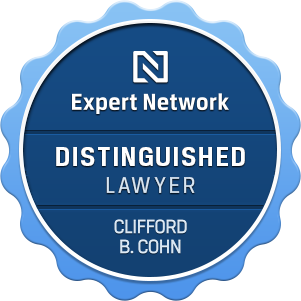Representing Attorneys in Disciplinary Proceedings
Pennsylvania attorneys facing disciplinary actions need to know their rights when dealing with the Office of Disciplinary Counsel (ODC).
An attorney’s first notice of the action will typically be a telephone call or a “Form DB-7,” an initial written complaint that is also known as a “Request For Statement of Respondent’s Position.”
The ODC dismisses many complaints before an attorney is ever contacted, and may also dismiss a DB-7 after reviewing the attorney’s written response and conducting further investigation into the underlying allegations. Often, after ODC learns all of the facts, the prosecutor will decide to dismiss the complaint.
While an attorney responding to a DB-7 is not required to retain counsel, doing so is advisable, because anything a Respondent says either orally or in writing to ODC may affect their livelihood, professional reputation, and ability to practice law in this jurisdiction and others.
An attorney in receipt of a DB-7 is also not required to speak with an investigator or prosecutor from ODC. Of course, the attorney should not ignore a call from ODC, but must also take care not to try to talk their way out of the situation or make statements or volunteer information that may later prove problematic. Instead, before responding to ODC, it is the attorney’s best interest to seek the advice of counsel who specializes in attorney disciplinary matters. It is also in the attorney’s best interest to review their malpractice policies to determine if they are entitled to coverage of the costs they incur in retaining counsel to represent them before the ODC.
Keep in mind that the mere receipt of a DB-7 does not prevent an attorney from practicing law while the complaint is pending. There are procedural rules, the Rules of Disciplinary Enforcement and the Disciplinary Board Rules, that must be followed before ODC may make any recommendation concerning the disposition of a complaint. However, once a DB-7 is issued, the disciplinary process must be followed until the complaint is resolved, even if the complaining party no longer wants to pursue a complaint. Moreover, the rules do not provide for a time limit, and it is common for ODC to have supplemental questions after receiving a response to the DB-7. Similarly, it is common for ODC to request documents from the Respondent during its investigation or to issue an amended DB-7.
It is crucially important that the attorney not ignore a DB-7. The written response to a DB-7 is the only procedural opportunity a Respondent has to defend himself or herself against the allegations, as the rules do not permit or provide for a hearing at this stage in the disciplinary process. The recommendation for discipline is made solely upon the Respondent’s written response, ODC’s investigation and/or negotiations with Respondent’s counsel.
There are several possible outcomes of an investigation by ODC. ODC may dismiss the DB-7 outright or with a letter concerning action that the attorney should take to avoid similar misconduct in the future.
Alternatively, ODC may recommend private discipline, which is an informal admonition or private reprimand. An informal admonition is typically administered at a meeting with the Chief of the Disciplinary System, and is then made part of the attorney’s disciplinary file. This may require the attorney to notify his or her malpractice carrier, as well as any other jurisdictions where the Respondent is admitted to practice. A private reprimand, which is more serious, is administered by the Disciplinary Board at a regularly scheduled session, and may also need to be disclosed to the Respondent’s malpractice carrier and to the other jurisdictions where the Respondent is admitted to practice.
Finally, an attorney may be subject to public discipline following a hearing. Such public discipline is limited to a public censure, where the charges and censure are read by the Supreme Court and televised, suspension of 1 day to 5 years, or disbarment of at least 5 years. Any suspension of more than 1 year or disbarment requires the Respondent to seek reinstatement to practice law, which can be a lengthy process that is not guaranteed to result in reinstatement. During this period, a suspended or disbarred attorney may not engage in any activity that is considered the practice of law as explained in the disciplinary enforcement rules.




